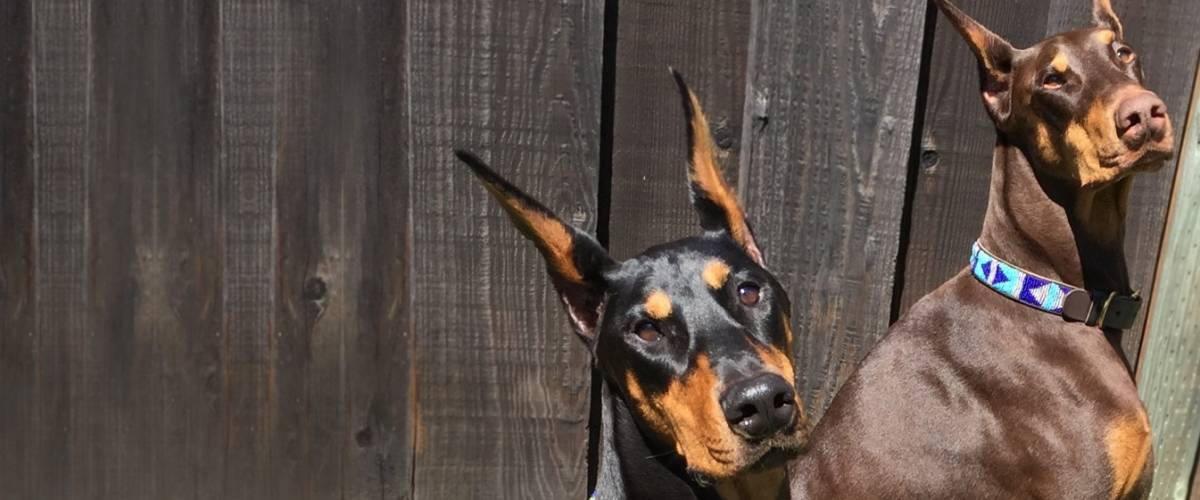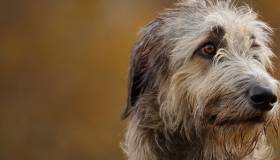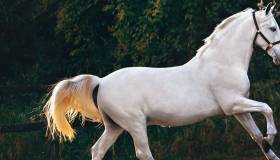
February 6, 2020 – Like so many of Morris Animal Foundation’s donors, Jan Knight’s heart is where her dogs are - her Doberman Pinscher dogs, to be precise. And, because of that love, she is a champion for helping to advance treatment of a disease she knows all too well in her breed, dilated cardiomyopathy (DCM), a common cause of heart failure in Doberman Pinschers.
Jan, along with others in the Doberman Pinscher community and clubs, are supporting a Morris Animal Foundation-funded study that will not only tackle this serious heart issue in Doberman Pinschers, but could one day help other dogs with DCM as well. The study is looking at a novel way to culture canine cardiac muscle cells to better study DCM and find solutions for the disease, because traditional culture methods are just not working.
“Research is important to me and this was the perfect study to support to help find some answers for this heartbreaking disease that I have experienced first-hand with some of my dogs,” said Jan. “Many of my family members are researchers and I know how hard it is for researchers to find funding for their projects. It’s great to have organizations, like Morris Animal Foundation, that support scientific research, including this important DCM research.”
Using samples from healthy and DCM-affected Doberman Pinchers, researchers plan to use a stem-cell reprogramming technique to create canine cardiac muscle cells in a laboratory setting. If successful, this vital research tool will help with the discovery process for new diagnostics, therapy targets and treatments for DCM in dogs. With several drugs available for DCM in human medicine, a viable culture method also will help researchers efficiently screen novel candidate drugs for DCM in dogs, opening new platforms for research, including clinical trials.
Jan knows Doberman Pinschers are a particularly high-risk DCM breed due in part to a genetic component. It’s also why they are the ideal candidate for DCM studies. She notes two genetic mutations are linked to dilated cardiomyopathy in her beloved breed. But the good news is there are available screening tests for these mutations.
“It’s important that people with pets do their homework,” said Jan. “Screening tests provide valuable health information but they are not diagnostic tests; a positive result for a genetic mutation does not mean you pet is destined to develop a specific disease. Instead, it alerts you that your pet may be at a higher risk. And that’s great information for you and your veterinarian to have so you can take preventive measures to reduce that risk.”
Jan works closely with her veterinarian to keep her Doberman Pinschers’ hearts healthy. Long-term care for her dogs includes extra heart imaging and taurine diet supplements; taurine is an amino acid found primarily in meat and low taurine levels has been linked to DCM in dogs. Even if her Doberman coughs, Jan makes a quick visit to the veterinarian, because – having done her homework – she knows coughing also is a common symptom for heart-related diseases.
“I think what Morris Animal Foundation does helps people learn about potential health problems in their pets,” said Jan. “The Foundation’s work also provides valuable funding to help researchers find new ways to treat or prevent these problems. And, as a bonus, I believe an investment in health research that helps our pets and wildlife may one day help people, too, with similar health issues, including this devastating heart disease.”
DCM is a progressive and fatal disease and the second most common heart disease in our canine friends. Finding a new culture method to study DCM will enable researchers to find new ways to tackle the disease. And this life-saving work would not be possible without the generosity of Jan and other donors, including dog clubs that raise money for health research. Their support is helping fund researchers working to find breakthroughs in DCM and other life-limiting diseases to improve the health and well-being of the animals we love.
Learn more about different types of heart disease in dogs and cats.




